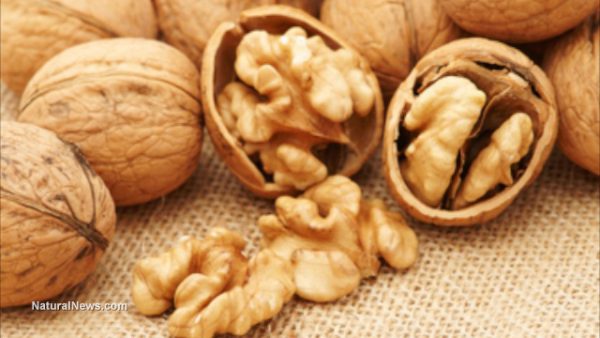Next to non-melanoma skin cancer, prostate cancer is the most prevalent cancer among men in America, according to the latest statistics from the Centers for Disease Control and Prevention (CDC). In 2013, 176,450 new cases of prostate cancer were diagnosed, and about 27,681 American men died from this largely preventable disease.
The prostate is a walnut-sized organ located just below the bladder and in front of the rectum. Since it produces fluid that makes up a part of semen, it’s crucial to human reproduction. Similar to the prostate gland in shape, walnuts provide a host of health-boosting chemicals that can slow prostate cancer growth, research has found.
Previous studies have already established a strong link between diet, especially dietary fat intake, and prostate cancer. A research team from the University of California Davis led by scientist and research nutritionist Paul Davis has been studying the health impact of walnuts for quite some time. They say that the U.S. government has been wrong all along in blaming high-fat diets as the culprit for many of our modern diseases, cancer and heart disease included.
“Walnuts are a perfect example. While they are high in fat, their fat does not drive prostate cancer growth. In fact, walnuts do just the opposite when fed to mice,” Paul Davis added.
In their previous work, Davis and his team found that walnuts reduced prostate tumor size in mice, but the question remained whether it was the nut itself, the oil, or the omega-3 fatty acids that are responsible for the tumor-shrinking effect. Their latest study, published in the Journal of Medicinal Food, was aimed at finding out which part of the walnut is responsible for the beneficial health effects.
The whole walnut matters, not just the omega-3
For their study, the scientists fed animals either whole walnuts, walnut oil, or a control oil mixture with the same omega-3 fatty acid content as walnuts. After 18 weeks, the researchers found that walnuts and walnut oil lowered cholesterol and slowed prostate cancer growth. The omega-3 control group, however, showed no beneficial effect.
The team also reported lower levels of insulin-like growth factor 1 (IGF-1) in the walnut and walnut oil group. IGF-1 is a hormone that has been linked to both breast and prostate cancer. Lower cholesterol levels also helped to deprive cancer cells of the nutrients they need, therefore slowing their growth.
Furthermore, walnut consumption was also associated with higher levels of adiponectin and the tumor suppressor PSP94, and lower levels of COX-2, which are all important markers for a reduced risk of prostate cancer.
While the scientists could not pinpoint the exact nutrients responsible for the anti-cancer effects, they ruled out omega-3, fiber, zinc, magnesium, and selenium. Additionally, they noted that it is probably the synergetic effect of multiple components in the walnuts that are responsible for the benefits, concluding that the secret to the cancer-killing properties of walnuts is the unique combination of several potent phytonutrients that are found in very few other foods.
They further noted that the health benefits cannot be broken down to one substance and stressed the importance of multiple components that nature has combined into one natural, healing food. Hence why natural, whole foods are so much more than just the sum of their individual phytochemicals.
“We showed that it’s not the omega-3s by themselves, though, it could be a combination of the omega-3s with whatever else is in the walnut oil,” Davis said. “It’s becoming increasingly clear in nutrition that it’s never going to be just one thing; it’s always a combination.”
While more research is needed — because studies in mice do not necessarily translate to humans — Davis added that walnut’s beneficial effects on humans do not require unrealistically high consumption levels to get the protective results. For their study, mice were eating the equivalent of 2.6 ounces of walnuts, or about 482 calories a day.
Follow more news about nutritional cancer solutions at CancerSolutions.news.
Sources:


